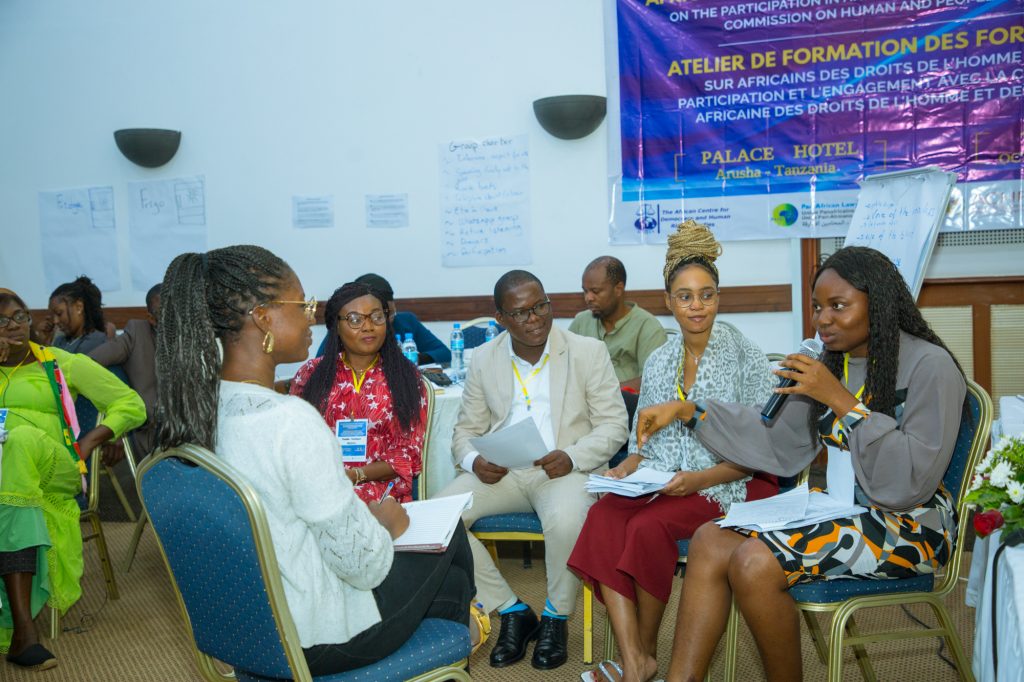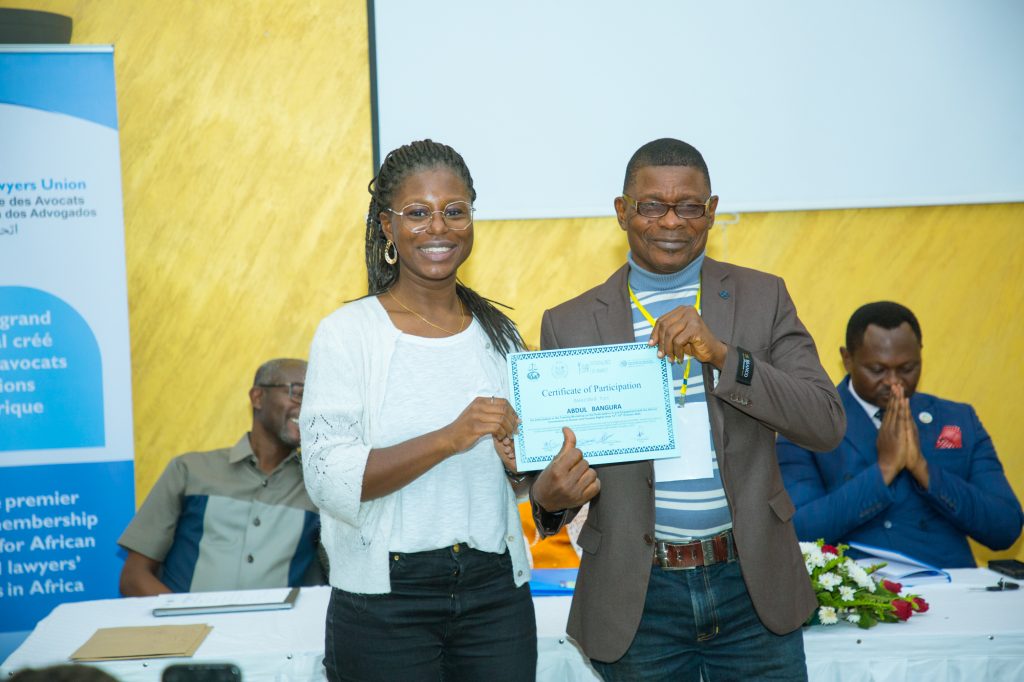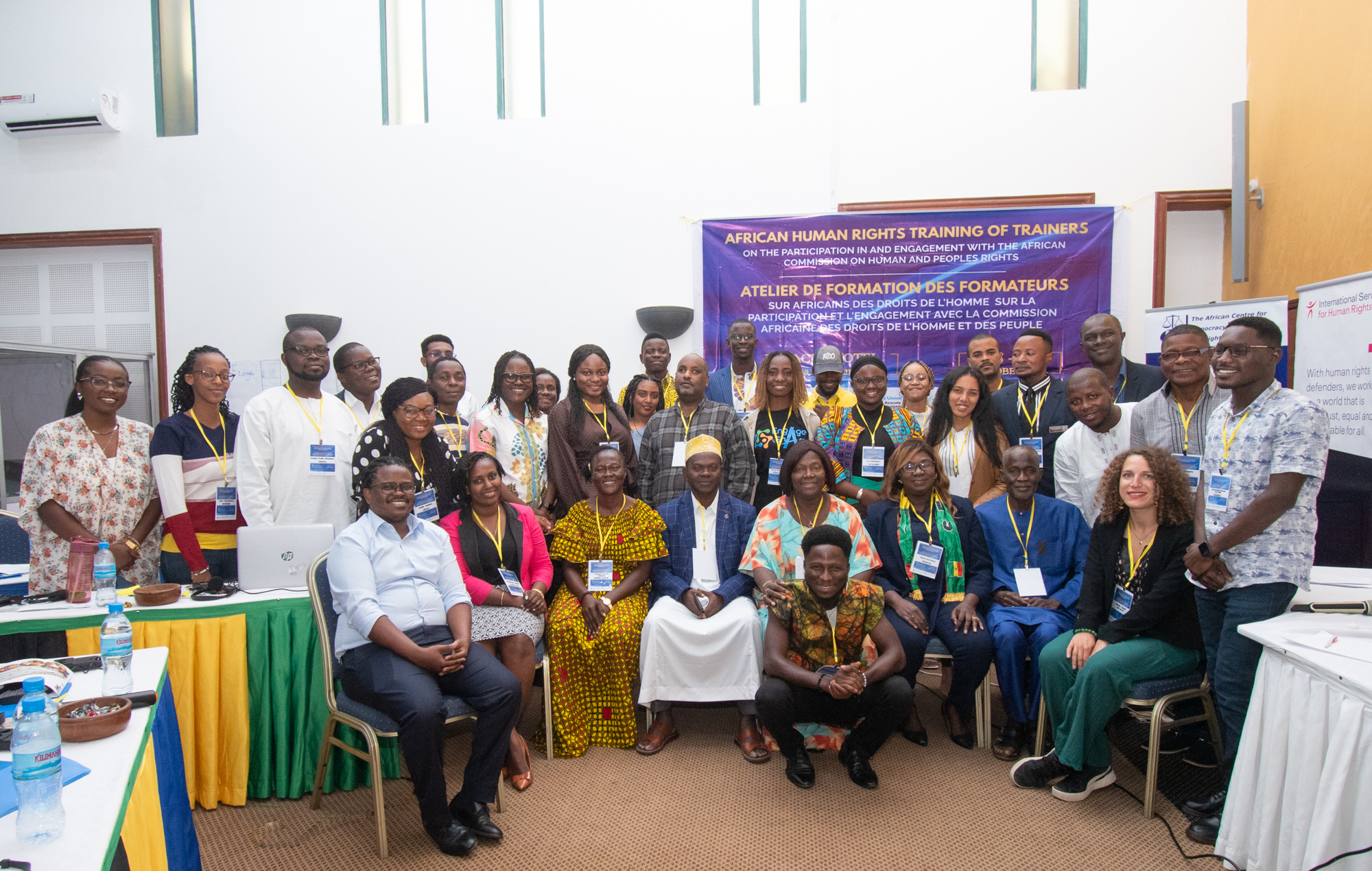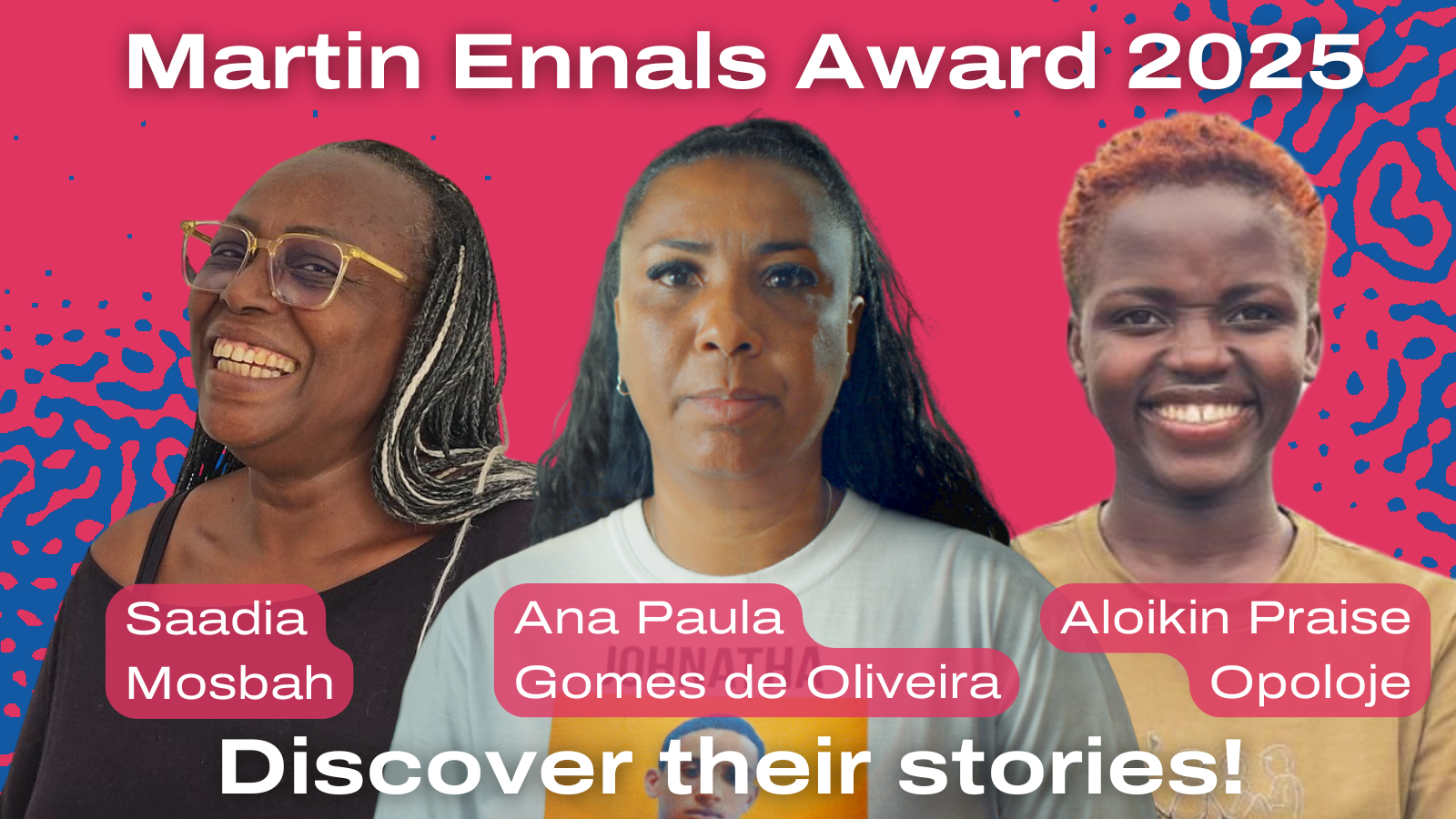For the first time, the African Commission is hosting its 77th Ordinary Session in Arusha (Tanzania), along with the NGO Forum which provides an avenue for human rights defenders in Africa to advocate for critical issues on the continent and network with a wide range of stakeholders. As in previous years, the ACDHRS and ISHR worked together to promote access to civil society in engaging with the African Commission on Human and Peoples’ Rights (the African Commission, or ACHPR) and held an essential training programme from 13 to 15 October.
Why hold a training ahead of the African Commission’s session?
Human rights defenders in Africa play an indispensable role in defending human rights, democracy and the rule of law and are at the forefront of many positive outcomes such as the adoption of protection laws for their vital work. Nevertheless, they encounter many obstacles (shrinking of civic space on the continent, increase of surveillance and smear campaigns, arbitrary arrests and killings, etc.) that they have to overcome with the tools available to them in order to achieve their goals – these tools include the mechanisms provided by the ACHPR of the African Union. For these mechanisms to be effective, they need to be accessible to defenders, but unfortunately, very few training or didactic resources targeted to activists currently exist aiming at having a comprehensive overview of the opportunities offered by the African Commission, while demand is increasing (more than 1345 people answered our call for applications).
This is why we have designed this unique training in order to equip defenders with the necessary knowledge and skills to make strategic use of the African Commission on Human and Peoples’ Rights in their national advocacy strategies.
Who were the participants?
The 24 experienced participants from across Africa* came together for the first time to learn about the regional system and participate in advocacy activities. This programme was organised in English and French to enable inclusive participation.
All of these committed defenders had something unique to bring to the table. Each of them had experiences in a diverse range of human rights fields including women’s rights, LGBTIQ+ rights, environmental rights, democracy and governance or protection of human rights defenders, and through their participation and interactions, they created an enriching environment to learn from each other.
*Angola, Benin, Burundi, Comoros, Côte D’ivoire, The Democratic Republic of Congo, Ethiopia, The Gambia, Ghana, Liberia, Madagascar, Nigeria, Sao Tome & Principe, Senegal, Sierra Leone, South Africa, Uganda.
What did they achieve?
The objectives of this in-person training were to:
- have an overview of the international human rights systems and consider the African space within it
- enhance the ability of human rights defenders to engage strategically with the ACHPR, as well as develop civil society networks
- explore and compare the benefits of engagement with these mechanisms, and examine how advocates can use them to bolster their work at the national level
- share tools and knowledge that human rights defenders can use to ensure their voice is central in regional human rights decision-making.
Through the interactive sessions held by ISHR and ACDHRS, participants were able to get a grasp of the UN and African human rights systems. They polished their advocacy techniques and analytic skills through practical workshops and scenario-based learning activities, using for example the reporting guidelines for civil society organisations.
Participants also had the opportunity to meet and engage in sessions with Commissioner Dr. Litha Musyimi-Ogana, Chafi Bakari from the OHCHR-East African Regional Office, and recognised advocates from RADDHO, (Sadikh Niasse, Senegal) and the Pan African Lawyers Union (PALU, with PraiseGod Millen Joseph).
Additionally, participants were given the opportunity to gain firsthand experience by attending the NGO Forum, scheduled from 16 to 18 October, and by being able to join the public sessions of the African Commission. This was useful for understanding how advocacy issues translate from theory to practice, and it supported the defenders in building their confidence by having a complete understanding of how things work in real life and then using that to ensure their voice is heard and is central in regional human rights decision-making.
100% of the participants were either very satisfied or satisfied with the training, and they had all prepared activities to implement back home.

Defenders from the training engaging in a fictive scenario © ACDHRS
We are grateful for the invaluable support of PALU, Open Society Foundation and Ford for making this training workshop possible.

Defender from Liberia during the diploma closing ceremony with ISHR staff © ACDHRS






